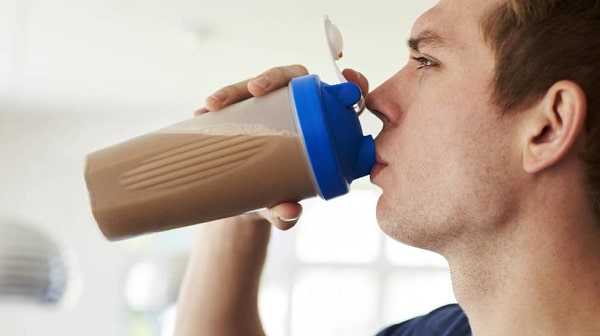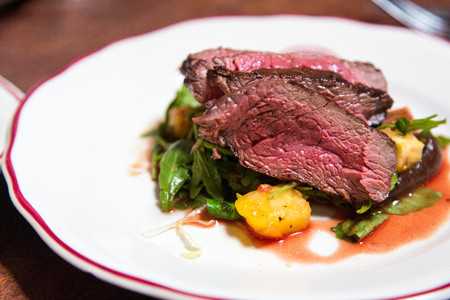
Recommended Daily Protein Intake for Athletes By American College of Sports Medicine
The recommended daily protein intake for athletes and all related is to maintenance of muscles mass, and more specifically with the processes of recovery or increase in muscle mass after moderate or high intense or prolonged physical exercise.
The participation of proteins as an energy source in moderate to high-intensity aerobic exercises should be minimal, as long as the adequate amounts of carbohydrates have been consumed before, during and after the activity to avoid that these are exhausted if you start consuming protein for energy. go to source

Proteins Play a Fundamental Role When you Do Sports
Proteins are essential to repair the small fibrillar tears in the muscle that occur during sports. Proteins provide the substrate for good exercise performance and adaptation to exercise.
Protein is a structural molecule that is assembled from amino acids, many of which the body cannot produce on its own. Foods of animal origin are usually rich in protein, with all the essential amino acids that we need. Many plant-based foods are also high in protein.
The body uses 20 amino acids to produce proteins, seven of which are essential (nine conditionally) and require their intake on a daily basis to meet your daily needs. Scientific data indicates that protein intake should be tailored to reflect sport-specific requirements and training goal.

How Much Protein Intake for Athletes Per Day?
Also Read: 8 Best Tips for Gaining Muscle Mass Quickl
Athletic performance depends on various factors, socioeconomic, cultural, environmental, personal, etc., among which we can mention genetics, training and diet. The latter is a very important factor when it comes to achieving success in a sport, to the point that training and preparation time can be wasted by an incorrect diet or dehydration.
But this performance: diet relationship is not fully internalized in athletes, so various studies report that the diet that some “champions” currently follow does not differ from the diet of the general population and in some cases it is more unbalanced and monotonous.

Recommended Daily Protein Intake for Athletes
It is not the first time that Sahil Fitness has commented on how the minimum amounts recommended by the WHO RDA 0.8 grams per kilo of weight per day (0.36g per Lbs per day) are well below the true needs of the population, even if it is sedentary. This daily intake level meets the nutrient requirements of nearly all healthy individuals.
In the case of endurance athletes such as triathletes or marathoners, the figures are not far off and in recent years a figure close to 1.8 grams per kilo per day is being proposed for athletes protein intake. go to source

The Quality of the Protein
The quality of the protein (called ” biological value “) varies depending on the amount of amino acids it contains. Amino acids form proteins and there are 20 different types of which nine are essential, that is, the human body is not capable of creating them on its own and they must be provided in the diet.
Proteins of high biological value (they contain all the essential amino acids) are those of animal origin (meat, fish, eggs and dairy). Those of vegetable origin (legumes, nuts, seeds) lack some essential amino acids, so it is necessary to make combinations of foods to get a complete protein.

What happens if too much protein is consumed?
- Excess protein intake passes out from the body through stools.
- The levels of cholesterol and uric acid in the blood can be increased.
- There may be a functional overload of the liver and kidneys.
- Urine becomes more acidic, this causes calcium to be lost through it, increasing the risk of osteoporosis.
Also Read: Coriander Leaves For Weight Loss & Natural Fat Burner
Daily Protein Intake for Athletes: Before, During or After Exercise or Competition
Before starting physical exercise or competition, it is not advisable to eat a large amount of proteins, nor include those that are slow to digest such as meat, eggs or protein supplements, as it can cause heaviness, fatigue, nausea and heartburn. go to source
A good option can be skimmed milk (according to individual tolerance), skimmed fresh cheese, low-fat cheeses (<18% FG). If possible, 1.5 to 3 hours should pass before performing the test.
During physical exercise or competition it is not necessary to provide protein.
After physical exercise or competition is the time of greatest relevance for protein intake, since the greater the intensity of the exercise performed, the greater muscle damage will occur, so the recovery phase is very important.

Protein intake during the 30 minutes after physical exercise or competition must be combined with carbohydrates to take advantage of the “metabolic window”, where the intake of nutrients goes directly to replenish muscle damage and glycogen stores. It should be done in a 3:1 or 4:1 ratios – for every 3-4 grams of carbohydrates, 1 gram of protein (50 grams of carbohydrates—15 grams of protein). go to source
How should I distribute it throughout my day-to-day?
According to a review by Aragon and Schoenfeld in 2013, the ideal would be to distribute the protein intake evenly throughout the day, in doses of approximately 0.4 – 0.55 grams per kilo of weight per meal.
You eat the more meals throughout the day, the more you have to move to the lower end and vice versa. Remember that these doses at the end of the day should represent the total that we mentioned earlier, about 2 grams per kilo of body weight.
What are the most interesting protein foods for your day-to-day?
Also Read: Exercises For Flabby Arms
As we said at the beginning, the range is enormous and surely the options that we will handle here can be modified or expanded according to the availability, tastes or needs of the person .

The best sources of animal protein
- Chicken breast: 11 grams of protein per 50 grams of food.
- Turkey breast: 11 grams of protein per 50 grams of food.
- Beef steak: 12 grams of protein per 50 grams of food.
- Pork loin: 10 grams of protein per 50 grams of food.
- Hake: 8 grams of protein per 50 grams of food.
- Salmon: 10 grams of protein per 50 grams of food.
- Sea bass: 9.5 grams of protein per 50 grams of food.
- Sardines: 9 grams of protein per 50 grams of food.
- Natural tuna: 11.5 grams of protein per 50 grams of food.
- Stuffed loin: 19 grams of protein per 50 grams of food.
- Serrano ham: 12.5 grams of protein per 50 grams of food.
The four keys that you have to take into account when losing fat;
- Egg white: 5.5 grams per 50 grams of food.
- Whey protein concentrate: 40 grams of protein per 50 grams of food.
- Whey protein isolate: 46 grams of protein per 50 grams of food.
- Fresh beaten cheese: 4 grams of protein per 50 grams of food.
The Best Sources Of Vegetable Protein;
- Dry chickpeas: 10.5 grams of protein per 50 grams of food.
- Dry lentils: 12.5 grams of protein per 50 grams of food.
- Dry beans: 10.5 grams of protein per 50 grams of food.
- Legumes are part of a food group that can offer great versatility, and more so now in the season we are in.
- Quinoa: 6.5 grams of protein per 50 grams of food.
- Seitan: 12 grams of protein per 50 grams of food.
- Tofu: 8 grams of protein per 50 grams of food.
- Tofu and Seitan are staples in the diet of a vegetarian or vegan. There are many interesting ways to prepare them.
- Rice: 3.5 grams of protein for every 50 grams of food.
- Pasta: 7 grams of protein per 50 grams of food.
- Oatmeal: 6 grams of protein for every 50 grams of food. We are sure that baking oatmeal has never occurred to you. Here we explain how.



